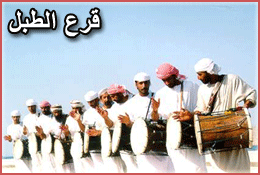-
plop saysSun 26th Sep 10@11:38 amgreat lesson again thanks.question : should اتمنا not be followed by a subjunctive ? cheers
-
Hi PLOP, thanks for writing. I'm not sure quite what you mean though - will you please explain?
اتمنى is an Arabic verb that needs to be followed by a connector, in this case أن. (Remember that it needs to be spelled with an ى and not an ا.) -
Dear Sierra,
I think I know what Plop means. In literary Arabic there are subjunctive forms which are known as ﻤﻨﺼﻮﺐ. The subjunctive is distinct from the indicative in either ending in “-a” or dropping the final “n”. Examples:
yaktubu (indicative) > yaktuba (subjunctive)
yaktubuuna (indicative) > yaktubuu (subjunctive)
Since the subjunctive is used in subordinate clauses introduced by ﺃﻦ, Plop expects the verb corresponding to “become” to be in the subjunctive. He is probably thinking of the way in which the French use the subjunctive in subordinate clauses introduced by “vouloir que”. Examples:
Je veux qu’il vienne. (I want him to come)
Je veux qu’il écrive à ses grands-parents (I want him to write to his grandparents).
In the present instance, however, it would not be possible to use the subjunctive in French because the subjects of the two verbs (“want” and “become”) are identical. “I want to become a professional singer” is “Je veux devenir une chanteuse professionnelle”. In this sentence the infinitive construction (devenir + NOUN PHRASE) replaces a subordinate clause introduced by “que”. -
Cher Plop,
Il me semble que votre question est parfaitement claire. Vous pensez sans doute à l’emploi du subjonctif dans les subordonnées introduites par “que”. Est-ce que je vous ai bien compris?
Cordialement
Desmond -
absolument - comme c'est quelque chose que je voudrais voire se réaliser (un souhait) - p.ex. je voudrais que cela se fasse . That's why I thought that with this verbاتمنى in arabic it would be the same thing (as in spanish : ojala que siguas bien por ejemplo)
I guess the use of the subjunctive in arabic is a bit different ? -
Cher Plop,
Tapez "subjonctif arabe" (sans guillemets) et lancez une recherche Google. Vous ne tarderez pas à découvrir un site qui me paraît digne d'intérêt: "Ressources pour apprendre l'arabe en ligne". La deuxième lecon est consacrée au subjonctif et à l'apocopée. (Veuillez excuser l'absence de la cédille. J'ai un clavier allemand.)
Cordialement
Desmond -
Dear Sierra,
Plop has confirmed that my assumptions are correct.
Best wishes
Desmond -
Thank you, DESMOND. PLOP, I now understand you perfectly.
The examples you give are good ones, DESMOND, though, of course, they don't apply to the first person conjugation of the verb.
You're correct that أن following أتمنى is followed by a subjunctive. We mark that subjunctive (منصوب) in this case, by adding an accent fat7a to the last letter of the verb as in:
أتمنى أن أصبحَ
That said, not all case markings are pronounced in Modern Standard Arabic and we generally don't teach them in beginner and lower-intermediate lessons. Good teaching is not throwing everything at the student at once.
Does that help?
All best,
Sierra -
crisp clear - thanks for your reply - I do realize it is more advanced stuff .In my native tongue(french) I do use it a lot ( a bit old school I know -lol) so I thought the same does exist in other languages as e.g. in arabic - hence my question.thanks again - salaam
-
Don't worry - "too advanced" questions are okay as well ;-) Ask away and we will do our best to answer.
-
Hey great lesson! I've got a quick question. What is the difference between قرع and عزف?
-
Thanks HEXAGONMOON. While عزف means specifically to play an instrument, قرع is used with drumming because it means "to strike or hit."
You can use عزف to say you're playing, for example, a guitar, but you can also use the verb دقّ على for a stringed or keyboard instrument, or, for that matter, a computer keyboard(!) -
thank you a wonderful lesson , packed with goodies.....moving into so many areas which puzzle me.
brilliant.
Lower Intermediate - Teach me to drum
| September 24th, 2010 | 13 comments |
Many of the musical instruments in the west today have come into existence because of the influence of Arabic music. In the dialogue today, there is a young lady wanting to learn how to drum, and Sierra and Elias go through this dialogue to help break it down.

|
 MP3 Download MP3 Download
 PDF Transcript PDF Transcript
|
 Audio Transcript Audio Transcript
 Exercise Exercise
|
|
| Basic | Premium | |
|---|---|---|
Join the Discussion

Random Word
جروح |
|

Advertisement


